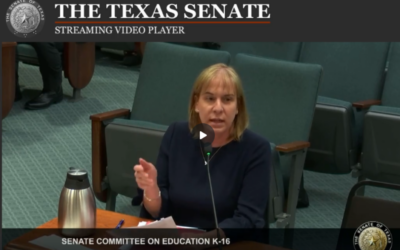The following is the first in our Children’s Health Vlog Series. This entry highlights the out-of-school health factors that influence student academic performance and their impact. It also covers best practices for crafting quality environments for children to learn and grow.
By Micheal Ou
Academic performance is often associated with school quality, but schools only explain one-third of student achievement in reality. The remaining two-thirds are attributable to non-school factors. This distinction should be kept in mind when addressing academic achievement, especially when creating education policy.
Any factors that cause stress or jeopardize physical or mental health can negatively impact academic performance. Some examples of negative out-of-school factors include family substance abuse, violence, and child malnutrition. Conversely, some positive non-school aspects include having good role models, participation in youth organizations, additional reading time, and cultural experiences. Generally, factors that improve a child’s maturity, emotional, and personal state will increase their academic achievement. An ideal environment for a child would have many positive non-school factors and few negative non-school factors. Given the pandemic where children are staying at home more, non-school factors such as home life may be playing a more significant role.
Former President Barrack Obama once said, “It’s not just making sure your kids are doing their homework, it’s also instilling a thirst for knowledge and excellence.” Children interested in a subject matter are more likely to perform well academically and excel in that area. Activities that encourage children to love learning and gain confidence in their abilities can support academic achievement in other areas. When children have avenues to reduce stress, improve their physical and mental health, and explore emerging interests, they can better focus in school and navigate academic challenges.
Michael Ou is the Health & Nutrition AmeriCorps VISTA at CHILDREN AT RISK. For questions or comments contact Michael at mou@childrenatrisk.org.
MORE LIKE THIS
Press Conference: Changes at U.S. Department of Education Impact Support for Emergent Bilingual Students
Massive layoffs at the U.S. Department of Education are predicted to impact 1.27 million Texas children Media Contacts:Morgan Gerri, 832.600.9354Rashena Franklin, 713.301.4577 TEXAS (March 19, 2025) – In an unprecedented move, the U.S....
Press Conference: Protecting Families and Children Amidst the Growing Measles Outbreak in Texas
Texas faces a growing measles outbreak, highlighting a critical need for increased public awareness to protect children. Media Contacts:Morgan Gerri, 832.600.9354Rashena Franklin, 713.301.4577 TEXAS (March 11, 2025) – Since January, Texas has...
Advocating in Support of SB 570 & SB 991
Mandi Kimball, Chief Government Affairs Officer with CHILDREN AT RISK, testifies in support of SB 570 & SB 991 during the March 25, 2025 hearing of the Texas Senate Committee on Education K-16. My name is Mandi Kimball, Vice President of...


